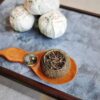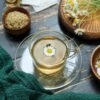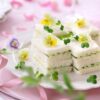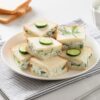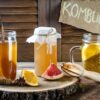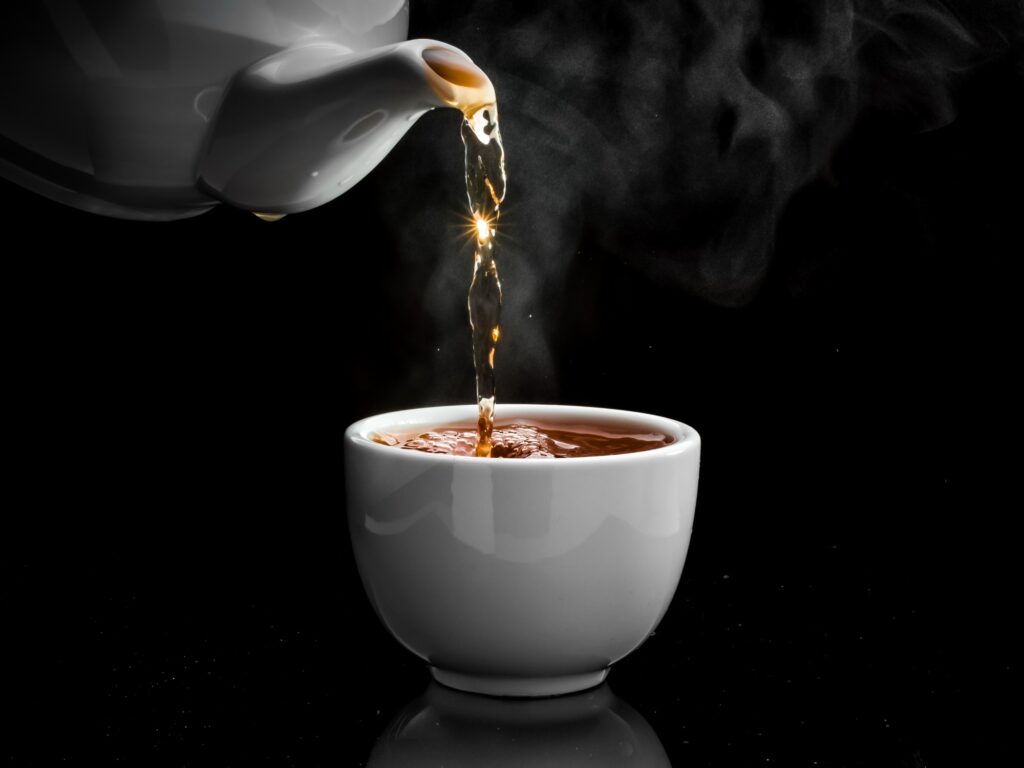
Steeped in tradition and bursting with flavor, black tea has been a beloved beverage for centuries. But did you know that the temperature at which you brew black tea can greatly affect its taste and aroma? In this article, we’ll explore the art of the perfect pour, uncovering the ideal temperature for brewing black tea.
Finding the right temperature for brewing black tea is a delicate balance. Too hot, and you risk extracting bitter compounds from the leaves, resulting in a less-than-pleasant brew. Too cool, and the full flavors and aromas won’t fully develop. So, what’s the sweet spot?
Experts generally recommend a brewing temperature for black tea between 200°F and 212°F (93°C and 100°C). At this temperature range, the water is hot enough to extract the tea’s rich flavors without scorching the leaves. However, it’s important to note that different black tea varieties may have their own temperature preferences, so experimentation is key.
Whether you prefer a robust breakfast blend or a fragrant Earl Grey, finding the perfect temperature for brewing your black tea can enhance your drinking experience. So grab your kettle, get the water just right, and savor every sip of your perfectly brewed cup.
Why temperature matters in brewing black tea
The temperature of the water used to brew black tea plays a crucial role in extracting the flavors and aromas from the tea leaves. When the water is too hot, it can scorch the leaves and result in a bitter and astringent brew. On the other hand, if the water is too cool, the tea leaves may not fully release their flavors and the resulting brew can taste weak and lacking in depth.
To achieve the perfect cup of black tea, it’s important to find the right balance of temperature. The ideal brewing temperature allows the tea leaves to steep and release their aromatic oils, while avoiding the extraction of bitter compounds. This delicate balance ensures that the tea is flavorful and enjoyable to drink.
The ideal temperature range for brewing black tea
Experts generally recommend a brewing temperature for black tea between 200°F and 212°F (93°C and 100°C). At this temperature range, the water is hot enough to extract the tea’s rich flavors without scorching the leaves. However, it’s important to note that different black tea varieties may have their own temperature preferences, so experimentation is key.
For example, robust breakfast blends and Assam teas tend to benefit from higher temperatures closer to the boiling point of water, around 212°F (100°C). These teas can handle the heat and release their bold flavors when brewed at higher temperatures. On the other hand, more delicate black teas like Darjeeling or Keemun may require slightly lower temperatures, around 195°F to 205°F (90°C to 96°C), to bring out their nuanced flavors without becoming bitter.
Factors that can affect tea temperature
While the boiling point of water is a standard reference point, there are a few factors that can affect the actual temperature of the water when brewing black tea. One important factor is altitude. At higher altitudes, water boils at lower temperatures due to the difference in air pressure. This means that if you’re brewing tea at a higher elevation, you may need to adjust the brewing temperature accordingly.
Another factor to consider is the material and thickness of your teapot or kettle. Different materials conduct heat differently, which can affect the rate at which the water cools down. For example, a ceramic teapot may retain heat for longer than a glass teapot, resulting in a slower temperature drop. It’s important to take these factors into account to ensure that your water is at the desired temperature when brewing black tea.
Different types of black tea and their recommended brewing temperatures
Not all black teas are created equal, and different varieties may require slightly different brewing temperatures to bring out their best flavors. Here are some popular black teas and their recommended brewing temperatures:
- Assam: This robust and malty black tea from India is known for its bold flavor. To fully extract the flavors, it’s recommended to brew Assam tea at a temperature of 212°F (100°C).
- Darjeeling: Often referred to as the “champagne of teas,” Darjeeling black tea is prized for its delicate and floral flavors. To prevent bitterness, it’s best to brew Darjeeling tea at a slightly lower temperature, around 195°F to 205°F (90°C to 96°C).
- Earl Grey: This classic black tea infused with bergamot oil has a distinct citrusy flavor. To fully appreciate the bergamot aroma, brew Earl Grey tea at a temperature of 200°F (93°C).
- Lapsang Souchong: This smoky black tea from China is dried over pinewood fires, giving it a unique and bold flavor profile. To bring out the smoky notes, brew Lapsang Souchong at a higher temperature, around 205°F to 212°F (96°C to 100°C).
Tools and equipment for measuring and controlling tea temperature
To achieve the perfect brew, it’s important to have the right tools and equipment to measure and control the temperature of your water. Here are some common tools that can help you achieve precision in your tea brewing:
- Electric Kettle with Temperature Control: An electric kettle with temperature control allows you to set the desired temperature for your water. This ensures that you can consistently brew your black tea at the ideal temperature without guesswork.
- Thermometer: A digital or probe thermometer can be used to measure the temperature of your water. Simply insert the thermometer into the water and wait for an accurate reading. This is a useful tool if you don’t have an electric kettle with temperature control.
- Temperature-Controlled Teapot: Some teapots come with built-in temperature control features, allowing you to heat the water to the desired temperature directly in the teapot. This eliminates the need for additional tools and simplifies the brewing process.
- Timer: While not directly related to temperature control, a timer can be a helpful tool to ensure that you steep your black tea for the appropriate amount of time. Steeping black tea for too long can result in bitterness, so it’s important to time your brew accurately.
Tips for achieving the perfect pour
Understanding the Science behind Temperature
Before we delve into the specifics of brewing temperatures, it’s important to understand the science behind it. When tea leaves are steeped in hot water, they release a variety of compounds that contribute to the tea’s flavor and aroma. These compounds include catechins, flavonoids, and volatile oils.
The temperature of the water used for brewing black tea plays a crucial role in determining which compounds are extracted from the leaves. If the water is too hot, it can extract bitter-tasting compounds, resulting in a harsh and unpleasant brew. On the other hand, if the water is too cool, it may not extract enough of the desired flavors and aromas from the leaves.
Recommended Brewing Temperatures for Black Tea
Experts generally recommend a brewing temperature for black tea between 200°F and 212°F (93°C and 100°C). At this temperature range, the water is hot enough to extract the tea’s rich flavors without scorching the leaves. However, it’s important to note that different black tea varieties may have their own temperature preferences, so experimentation is key.
For example, robust and full-bodied black teas, such as Assam or English Breakfast, can withstand higher temperatures towards the upper end of the range. These teas benefit from water that is closer to boiling, around 212°F (100°C), as it helps to extract their bold flavors.
On the other hand, more delicate black teas, like Darjeeling or Ceylon, may require slightly lower temperatures around 200°F (93°C) to avoid overpowering their subtle nuances. These teas are often referred to as “first flush” or “second flush” teas and are known for their floral and fruity notes.
Factors Affecting Brewing Temperature
While the recommended temperature range serves as a good starting point, it’s important to consider other factors that can affect the brewing temperature of black tea. These factors include:
Tea Leaf Quality and Size
The quality and size of the tea leaves can influence the brewing temperature. Generally, larger and higher-quality tea leaves can withstand higher temperatures, while smaller or broken leaves may require slightly lower temperatures to prevent over-extraction.
Water Quality
The quality of the water used for brewing also plays a role in determining the ideal temperature. Hard water, which contains high levels of minerals, can affect the taste of the tea. It is recommended to use filtered or purified water for brewing to ensure a clean and pure flavor.
Steeping Time
The steeping time also affects the temperature at which the tea is brewed. Longer steeping times allow for more heat to be transferred from the water to the tea leaves, resulting in a higher overall brewing temperature. Conversely, shorter steeping times may require slightly higher initial water temperatures to achieve the desired extraction.
Personal Preference
Ultimately, the perfect brewing temperature for black tea is a matter of personal preference. Some individuals may prefer a stronger and more robust brew, while others may enjoy a milder and more delicate cup. It’s important to experiment with different temperatures and steeping times to find the perfect balance that suits your taste.
Enjoying the perfect cup of black tea
Whether you prefer a robust breakfast blend or a fragrant Earl Grey, finding the perfect temperature for brewing your black tea can enhance your drinking experience. The ideal brewing temperature for black tea falls within the range of 200°F to 212°F (93°C to 100°C), but it’s important to consider the specific characteristics of the tea you’re brewing and adjust accordingly.
By understanding the science behind temperature and considering factors such as tea leaf quality, water quality, steeping time, and personal preference, you can achieve the perfect pour that brings out the full flavors and aromas of your black tea.
So grab your kettle, get the water just right, and savor every sip of your perfectly brewed cup. Cheers to finding the ideal temperature for brewing black tea!

